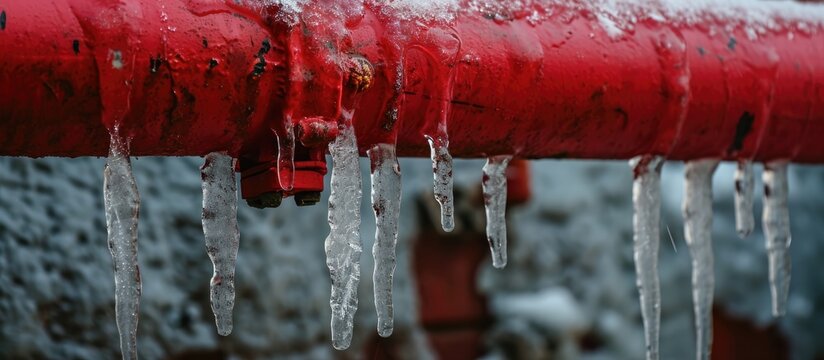What're your thoughts about How to Prevent Your Pipes From Freezing?

Cold weather can ruin your plumbing, especially by freezing pipelines. Below's exactly how to stop it from taking place and what to do if it does.
Introduction
As temperature levels decline, the risk of icy pipelines boosts, potentially bring about costly repair work and water damage. Comprehending how to avoid icy pipelines is critical for house owners in chilly climates.
Recognizing Icy Pipelines
What creates pipelines to freeze?
Pipes ice up when subjected to temperature levels listed below 32 ° F (0 ° C) for prolonged periods. As water inside the pipelines ices up, it expands, taxing the pipeline wall surfaces and possibly triggering them to rupture.
Risks and damages
Icy pipelines can cause supply of water disturbances, property damages, and pricey repairs. Ruptured pipelines can flooding homes and trigger comprehensive architectural damage.
Indicators of Frozen Pipes
Determining frozen pipelines early can avoid them from bursting.
Just how to recognize frozen pipelines
Seek decreased water flow from faucets, unusual odors or noises from pipes, and noticeable frost on exposed pipes.
Avoidance Tips
Insulating vulnerable pipelines
Cover pipelines in insulation sleeves or utilize heat tape to safeguard them from freezing temperatures. Concentrate on pipelines in unheated or outside areas of the home.
Home heating methods
Keep indoor areas appropriately heated up, especially locations with pipes. Open up cupboard doors to allow cozy air to flow around pipes under sinks.
Securing Outdoor Pipes
Garden hoses and outdoor faucets
Disconnect and drain pipes yard hoses prior to wintertime. Mount frost-proof faucets or cover outside taps with insulated caps.
What to Do If Your Pipelines Freeze
Immediate actions to take
If you suspect frozen pipelines, keep taps open up to ease stress as the ice thaws. Use a hairdryer or towels taken in hot water to thaw pipes gradually.
Long-Term Solutions
Structural changes
Take into consideration rerouting pipes far from outside wall surfaces or unheated areas. Include additional insulation to attic rooms, cellars, and crawl spaces.
Updating insulation
Buy top quality insulation for pipes, attics, and walls. Appropriate insulation assists preserve constant temperature levels and decreases the threat of frozen pipelines.
Conclusion
Protecting against icy pipelines calls for aggressive measures and fast reactions. By recognizing the causes, indicators, and safety nets, house owners can shield their plumbing during winter.
Helpful Tips to Prevent Frozen Pipes this Winter
UNDERSTANDING THE BASICS: WHY PIPES FREEZE AND WHY IT’S A PROBLEM
Water freezing inside pipes is common during the winter months, but understanding why pipes freeze, and the potential problems it can cause is crucial in preventing such incidents. This section will delve into the basics of why pipes freeze and the associated problems that may arise.
THE SCIENCE BEHIND FROZEN PIPES
When water reaches freezing temperatures, it undergoes a physical transformation and solidifies into ice. This expansion of water as it freezes is the primary reason pipes can burst. As the water inside the pipe freezes, it expands, creating immense pressure on the walls. If the pressure becomes too great, the pipe can crack or rupture, leading to leaks and water damage.
FACTORS THAT CONTRIBUTE TO PIPE FREEZING
Low Temperatures: Extremely cold weather, especially below freezing, increases the risk of pipes freezing. Uninsulated or Poorly Insulated Pipes: Pipes located in unheated areas, such as basements, crawl spaces, or attics, are more prone to freezing. Insufficient insulation or lack of insulation altogether exacerbates the problem. Exterior Wall Exposure: Pipes running along exterior walls are susceptible to freezing as they encounter colder temperatures outside. Lack of Heating or Temperature Regulation: Inadequate heating or inconsistent temperature control in your home can contribute to frozen pipes. PROBLEMS CAUSED BY FROZEN PIPES
- Pipe Bursting: As mentioned earlier, the expansion of water as it freezes can cause pipes to burst, resulting in significant water damage.
- Water Damage: When pipes burst, it can lead to flooding and water damage to your property, including walls, ceilings, flooring, and personal belongings.
- Structural Damage: Prolonged exposure to water from burst pipes can compromise the structural integrity of your home, leading to costly repairs.
- Mold and Mildew Growth: Excess moisture from water damage can create a favorable environment for mold and mildew growth, posing health risks to occupants.
- Disrupted Water Supply: Frozen pipes can also result in a complete or partial loss of water supply until the issue is resolved.
WHY CERTAIN PIPES ARE MORE PRONE TO FREEZING
- Location: Pipes located in unheated or poorly insulated areas, such as basements, crawl spaces, attics, or exterior walls, are at higher risk of freezing.
- Exterior Pipes: Outdoor pipes, such as those used for irrigation or exposed plumbing, are particularly vulnerable to freezing as they are directly exposed to the elements.
- Supply Lines: Pipes that carry water from the main water supply into your home, including the main water line, are critical to protect as freezing in these lines can affect your entire plumbing system.
- Underground Pipes: Pipes buried underground, such as those connected to sprinkler systems or outdoor faucets, can be susceptible to freezing if not properly insulated.
https://busybusy.com/blog/helpful-tips-to-prevent-frozen-pipes-this-winter/

Do you enjoy reading about 6 Ways to Prevent Frozen Pipes? Make feedback further down. We will be delighted to find out your suggestions about this blog. We are looking forward that you visit us again in the near future. Do you know about somebody who is serious about How to prepare your home plumbing for winter weather? Be sure promote it. Bless you for your time. Don't hesitate to come visit our site back soon.
Visit Homepage